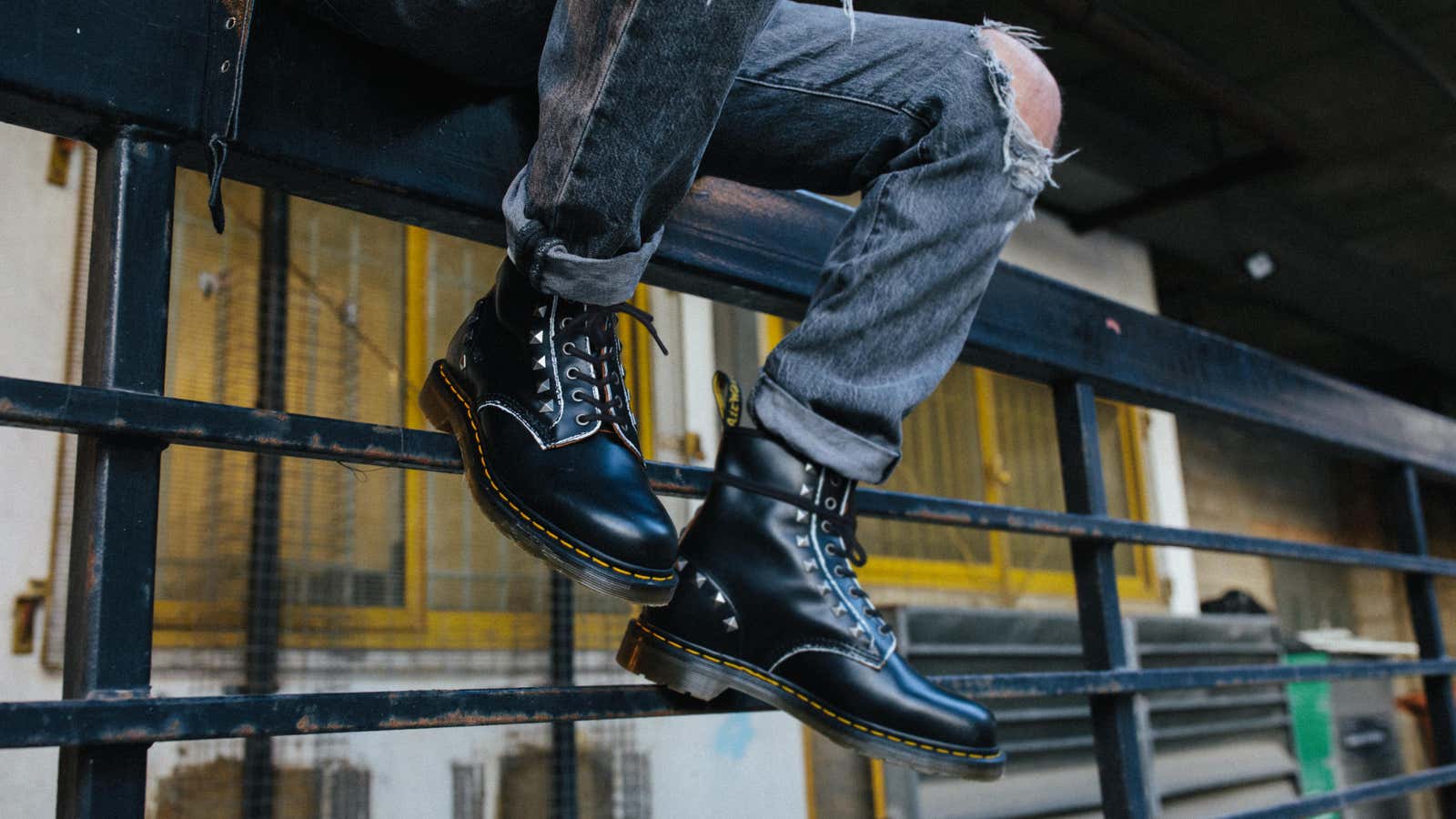A tough leather upper, air-cushioned sole, and yellow stitching have been key ingredients in Dr. Martens’s staple boots for decades. Now the company is also selling plenty that dispense with the leather entirely.
Sales of Doc Martens’s vegan line have grown by “multiples hundreds of percent” in recent years, CEO Kenny Wilson told the Guardian. A spokesperson tells Quartz that, between its 2017 and 2019 fiscal years, the company saw a 279% increase in pairs of vegan shoes sold. Of course it’s easier to put up high growth numbers when starting from a small base, but Dr. Martens also says its vegan line, first launched in 2011, rose to 5% of its global footwear sales in its fiscal year ended March 31.
Alternatives to animal products have steadily improved and become more available on the fashion market. Some brands have adopted them for ethical reasons, as in the case of Stella McCartney, which describes itself as a “vegetarian brand.” Others have done so to mimic animal materials on a budget or to appeal to shoppers who don’t buy animal products. Dr. Martens uses one of the most popular leather substitutes, polyurethane, which is prized for its suppleness and resemblance to real leather. (Whether leather substitutes are more sustainable is a separate matter.)
The brand is finding plenty of customers for those vegan shoes as well as new products, such as summer sandals. The company yesterday reported sales of £454.4 million ($548.2 million) for the 2019 fiscal year, an increase of 30% over the year prior. It was the classics, though, that topped sales, it said. Across all geographies, its well-known 1460 boot was still its number-one seller.
